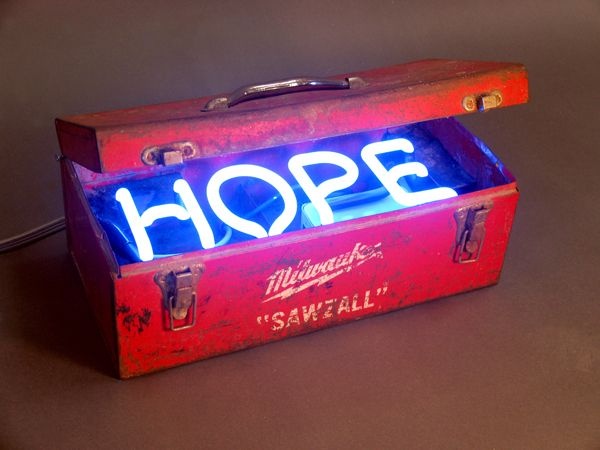There are pages worth of downsides to the grieving process, what is often not talked about though is the secret superpower so many get.

By Noelle Rollins
I was talking with a friend last month as the one year anniversary of her husband’s passing was approaching, “Noelle, I feel like I’m in a freaking movie, like it can’t be real. All the stuff happening.”
She went on to explain people who seems to come into her life daily during the last year as if on cue to give her a message or sign. The perfectly accidental meeting of others with stories to share for her benefit. Odd meetings that she would have brushed off in the past, now she was hyper-focused on allowing them to unfold. I couldn’t help but nod in agreement. Yes, I knew exactly what she was talking about. It’s the grieving superpower.
After losing someone who was a part of your daily life, there is a time that follows that event where life feels like it has been busted into millions of pieces. Every daily routine now altered, every holiday forever changed.
Imagine yourself in a tunnel, with laser like focus on processing one thing; grief. All attention is on trying to understand the loss, remembering your loved one, and figuring out how to move forward. All other sounds are now muffled in the background, things that seems to matter before often seem frivolous during this time. This time, although a time I wouldn’t wish on anyone… does bring it’s own gifts as well.
If you are in the midst of this time… I’m sending you so much love. It’s hard. It is full of unknowns and times where the floor feels to drop out from under you. Here are 7 ways to honor the superhero grief period:
1) Write in a journal – during this time of intensity it can feel as if things will be this way forever. Write things down. Write your feelings, write your memories. Write all that you notice. Signs from spirit, dreams, the kindness of others. Write them all down. Continue writing when you feel anger, sadness, fear and yes, even joys. During this time of hyper-awareness and simplified life it’s the time to capture what you can to gift yourself with later.
2) Know that you are not alone – find your people. Sometimes those around us are understanding and can be an incredible support system. Others are not that lucky and don’t have people around that are able to support you. Find online grief groups, read blogs, read books (mine is coming in 2020). You do not have to experience this time alone. Being so in tune with grief and our loss it can leave everything else as a blur. Don’t be afraid to find help to rejoin and bring focus back onto that outer world as well.
3) There is no proper timetable for grief – I’ve heard too many stories of a boyfriend or spouse expressing frustration that “your not over it yet”. In-laws who don’t get it. Friends who seem annoyed that all you talk about is your loss. Family who wants you to move forward and quit “moping”. People try to understand but we all handle things differently. My advice is this: trust your knowing. Find people who can help you move forward and honor your grief. If you are not able to handle your career, your kids, your life then I encourage you to find help. Find a counselor, pastor, or therapist who can walk you through honoring your grief while also honoring your other life commitments.
4) Gather wisdom from this time – I have always tried to gather any nuggets of wisdom or purpose from all hard times. Is there something you could take from this unthinkable time that could help others? Is there a new perspective you’ve gained? Finding truth and wisdom doesn’t mean you are glad the event happened. It means that if you have to walk through this fire… at least try to harvest what you can from it so you can reach out a hand to the next person to help them through the fire as well.
5) Find a way to honor the memory of your loved one. There are many options, find one that resonates with you or your memory of your loved one. Write about them, create a photo album, find a creative outlet such as drawing or singing, crafting, cooking or even redecorating. When my mom passed my sisters and I gathered up all her favorite recipes along with photos of her cooking with her grandchildren and put together a cookbook. That following Christmas we gave those cookbooks to all my mom’s siblings and our for each of us. It was a therapeutic process creating that book and allowed us hours of conversation and reliving memories of our mom in the process. Even 11 years later I can now share those recipes and memories of my mom with my son who never go to meet her.
6) Honor your knowing and the signs – don’t waste your energy trying to convince others of your beliefs or experiences that have happened. The night after my mom passed away I had a very clear dream that turned out to reveal a place that we later held her funeral. I also got signs almost immediately from her. I kept a journal where I wrote about the dreams and signs. I made a decision early on that I would be open about my experience but I really didn’t give any care to whether anyone believed me or not. I knew what I knew. Just as my friend shared with me about her experiences, pay attention to those who enter your life and gift you with conversations and perspective.
A feather that appeared on my paintbrush while creating a painting to honor signs from spirit.
7) Take photos. I wrote about this extensively here but I’ll sum up my point with this: If I could tell every person who has just lost someone dear to them one thing it would be, “take photographs”. Go into your loved one’s space and take a photo of the way the reading glasses are sitting on the side table, how the spice cabinet looks or the jacket hanging on the hook. Photograph the wall of framed photos, the collection of ball caps or figurines. Capture the yard, the tools on a workbench in the garage, the view from the kitchen table, even your favorite chair.
In the year following my mom’s death the walls were repainted, furniture replaced and passed down to us kids. Slowly my mom’s decorating style and personality were taken out of the house. I’m so grateful to this day of any photos I have where I can see parts of her decorating and style in the background.
This time will pass. Grip it with all you can while you are in this sacred, painful, hyper-focused emotional and mental place. Even though you’d never choose to be in this situation… someday you’ll look back and realize that this hard time was sacred. There was a bond still to your loved one in your daily thoughts and activities.
Sending you much love and wishes for healing and the gift of memories of your loved one. I hope you find these 7 tips helpful. What would you add? It’s a beautiful thing when we can all help one another navigate through grief. While I certainly don’t have all the answers, I happily share what I can in hopes that even one thing can help someone else who is experiencing a world shattering loss right now.
Best wishes to you, Noelle
Complete Article ↪HERE↩!



